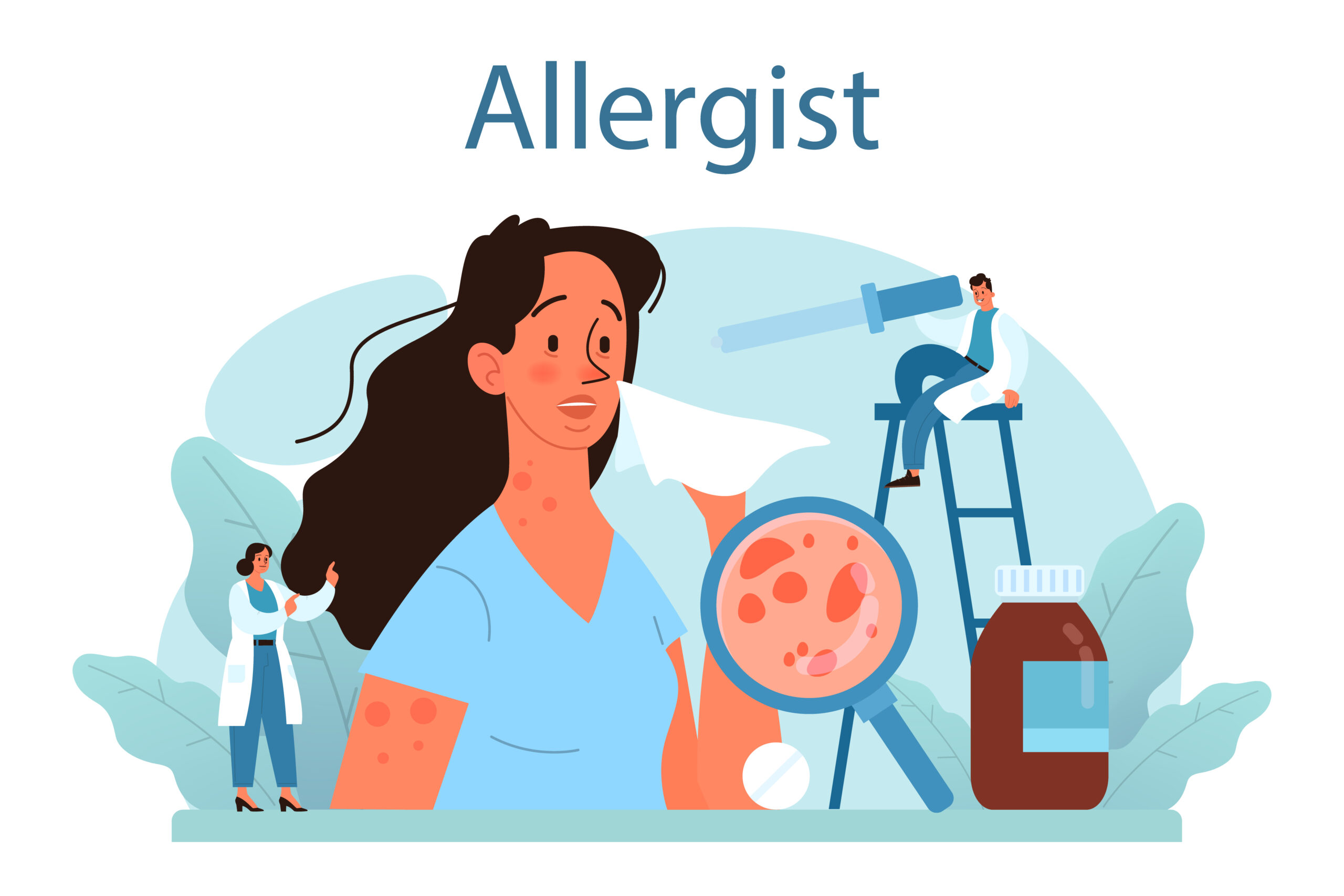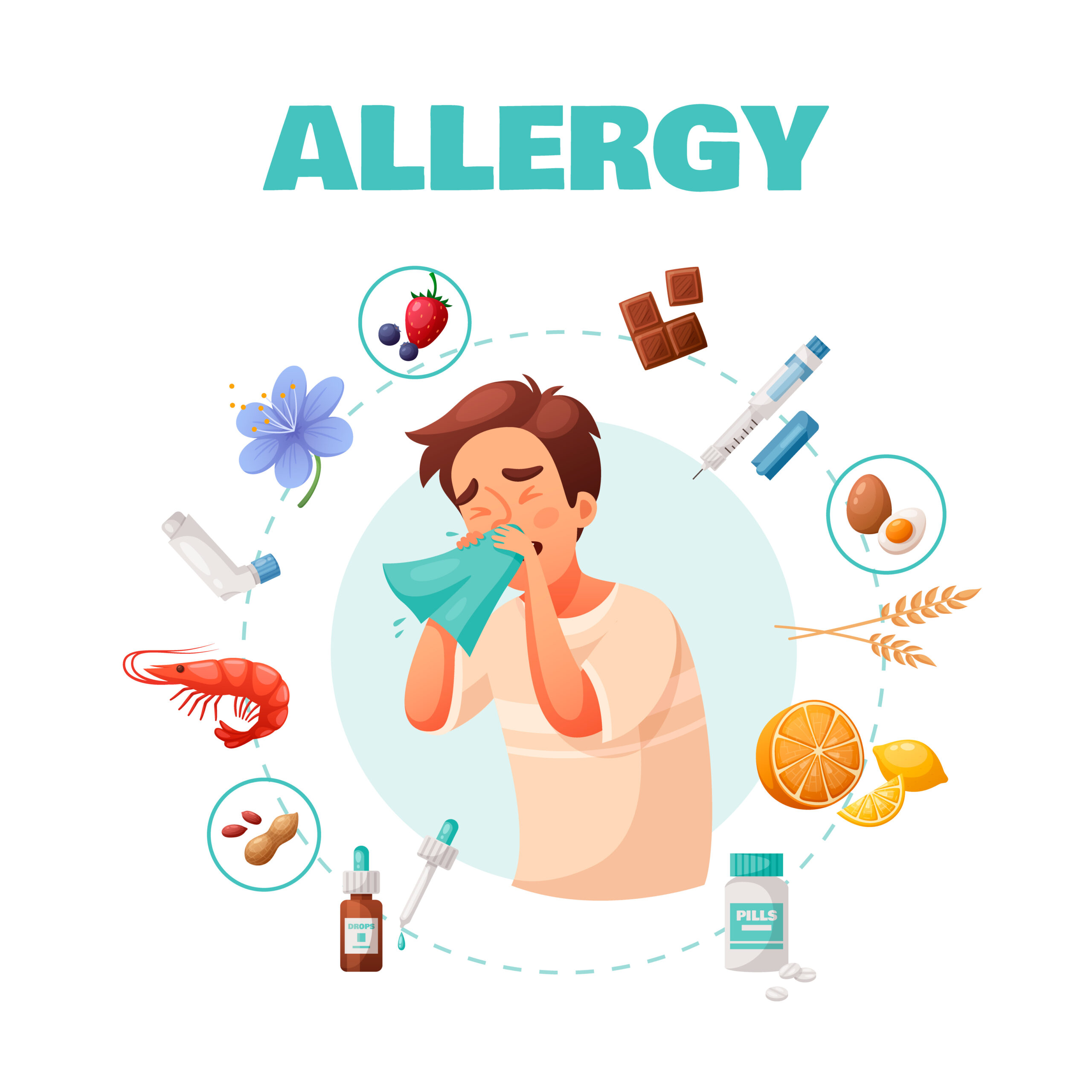Insight Allergy & Immunology – Allergy doctors, also known as allergists or immunologists, specialize in the diagnosis and treatment of allergic conditions and immune system disorders. If you experience frequent or persistent allergic symptoms, suspected food allergies, respiratory issues, or skin conditions such as eczema or hives, an allergy specialist can assess your situation and help improve your quality of life. Whether you have an established relationship with an allergy specialist or you are visiting one for the first time, here are seven important questions to help you get the most out of your next appointment.
What specific allergies am I experiencing?
In order to avoid common triggers and understand how to treat your allergies effectively, it is important to have a thorough understanding of the allergies you are experiencing. Managing allergies effectively will also allow you to live a more comfortable and fulfilling life, avoiding potential emergency situations or complications.
How are my allergies diagnosed?
There are a variety of testing methods used for identifying allergies, so it is important to understand the diagnostic process. Most allergies are diagnosed through a combination of medical history assessments, physical examinations, and testing. Skin prick tests (SPT), blood tests, patch testing, and challenge tests are the most common methods allergists use to provide an accurate diagnosis and personalized treatment.

What are the common triggers for my allergies?
Allergies can be triggered by a wide range of allergens, which are usually harmless substances that cause an adverse response in the immune system. Common triggers for allergies include pollen, dust mites, pet dander, mold spores, insect stings, and foods. Triggers vary among people who experience allergies and reactions can vary from mild to severe.

What treatment options are available for my allergies?
Treatment options for allergies vary depending on the type and severity of what you are experiencing. Medications such as antihistamines, decongestants, and nasal corticosteroids (nasal sprays) are all common. Some people benefit from immunotherapy (allergy shots), which is a long term treatment option. Other interventions such as air purifiers, as well as lifestyle modifications, may also be recommended depending on your individual health needs.
Are there any natural treatments I can try?
Although natural treatments may not replace the effectiveness of prescribed medications, they can be highly effective in helping to relieve allergy symptoms. Some natural treatments that people often find beneficial include vitamin C-rich foods that can act as natural antihistamines, acupuncture, steam inhalation to relieve nasal congestion, and certain essential oils like peppermint and eucalyptus that have been found helpful in easing respiratory symptoms.
What should I do in case of an allergic reaction or emergency?
For people with severe allergies, it is important to clearly understand what to do in case of an allergic reaction or emergency situation. Be aware of common allergic reaction symptoms for your condition. If you have been prescribed with an epinephrine auto-injector (e.g. EpiPen), have a clear understanding of how and when it should be used. Also ask about when it may be necessary to contact emergency services.

How often should I follow up for allergy management?
The frequency of follow-up appointments will vary depending on the type of allergies you are experiencing, the effectiveness of your treatment plan, and if there are any changes in your symptoms and overall health. It is important to work closely with your allergist to determine an appropriate schedule for follow-up visits as needed.

Seeking the expertise of an allergy specialist may be beneficial for people experiencing a range of allergic symptoms and conditions. It is also always important to come prepared with relevant questions to ensure you receive the best possible care and understand your allergies better. To learn more about allergy treatments and our services at Insight Allergy & Immunotherapy, contact us today to schedule an appointment.
FAQ
Q: What is the difference between an allergist and a primary care physician?
A: Although they may overlap in certain areas, allergists and primary care physicians serve different roles in healthcare with distinct expertise. While primary care physicians provide general medical care to patients, allergists specialize in the diagnosis, treatment, and management of allergies and immunologic disorders.
Q: Can children visit an allergy doctor?
A: Yes. Children can benefit from visiting an allergy specialist. Some allergists even specialize in diagnosing, managing, and treating allergic conditions and immunological disorders in children.
Q: Can allergies be cured?
A: Allergies are considered a chronic condition and a complete cure is often not achieved. However, the right management plans can significantly reduce symptoms and improve quality of life for people experiencing most allergies.

